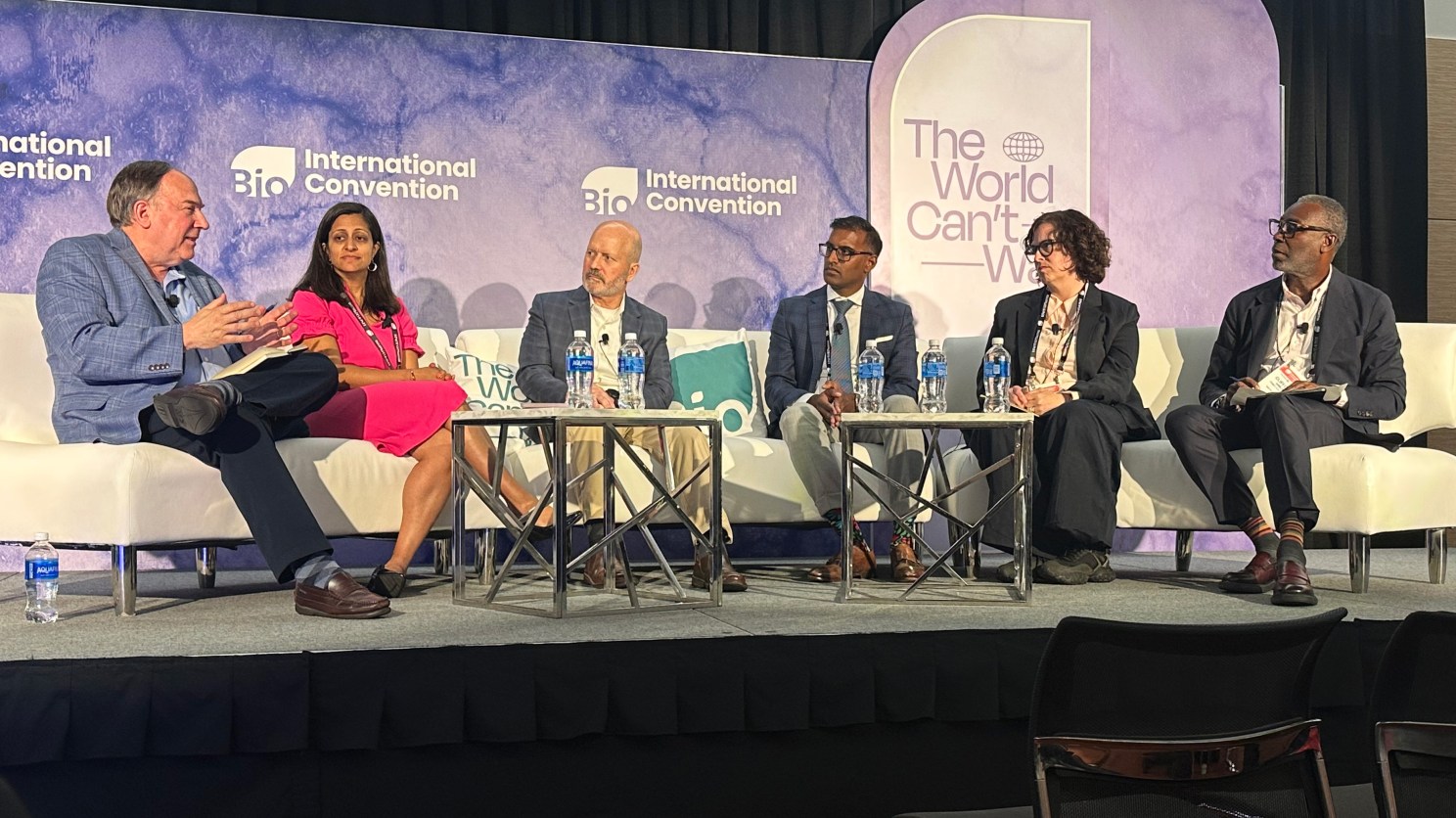Access to oncology medicines in resource-challenged countries requires multi-pronged approach

Members of the HGHI Scholarly Working Group, Keith Flaherty (left), Aparna Parikh (second from left), and Clifford Samuel (first from right), at a panel at the BIO Convention in Boston in June 2025.
Cancer is the second leading cause of death worldwide, according to the American Cancer Society. In 2020, approximately 20 million new cancer cases were diagnosed, and 9.7 million people died from the disease globally. While 90 percent of people in high-income countries have access to comprehensive cancer care, 75 percent of patients in resource-challenged countries (RCCs) lack access to any diagnosis and treatment, resulting in disproportionately low survival rates in these countries. Supported by the Harvard Global Health Institute, the Scholarly Working Group “Access to Cancer Therapeutics” proposed that RCCs should collaborate with various stakeholders to make the latest oncology medicines more accessible.
“It takes a village to solve the problem of limited access to innovative oncology medicines in RCCs,” said Aparna Parikh, associate professor of medicine at Harvard Medical School and faculty lead of the Scholarly Working Group. “The complex challenges to this problem will require all stakeholders, including pharmaceutical companies, local governments, and civil society, to adapt and collaborate to create an environment that would benefit all parties involved.”
Over the past year, the Scholarly Working Group partnered with former pharmaceutical executives and conducted a series of listening sessions to gain insight into how pharmaceutical companies approach access to oncology treatment options in RCCs.
“Much of the debate in global public health circles and in the research community places the bulk of the blame (and the burden to solve) on industry for the lack of access in RCCs, when in fact a holistic and collaborative approach is required, with critical roles for each player across the full spectrum of stakeholders in this arena. This is the tried-and-true solution to an improved outcome,” said Claudio Lilienfeld, former Senior Director at Gilead Sciences.
Lessons from the HIV response: A multi-stakeholder approach
In a recently published white paper, the group outlines how the multi-stakeholder global response to HIV can be a model for improved patient outcomes and access to oncology medicines in RCCs.
Advocates, activists, donor governments, multilateral organizations, and RCCs all adapted to facilitate and expedite the HIV response, including mobilizing action, raising disease awareness, and improving health capacity.
Pharma companies also adapted their business models to meet the HIV challenge. The voluntary licensing model used extensively by Gilead, for example, not only became the path through which millions of patients and global aid funders achieved access to affordable life-saving anti-retrovirals, but also generated revenues for the company through low-margin/high-volume strategies, which kept the company’s access to medicines business unit profitable.




